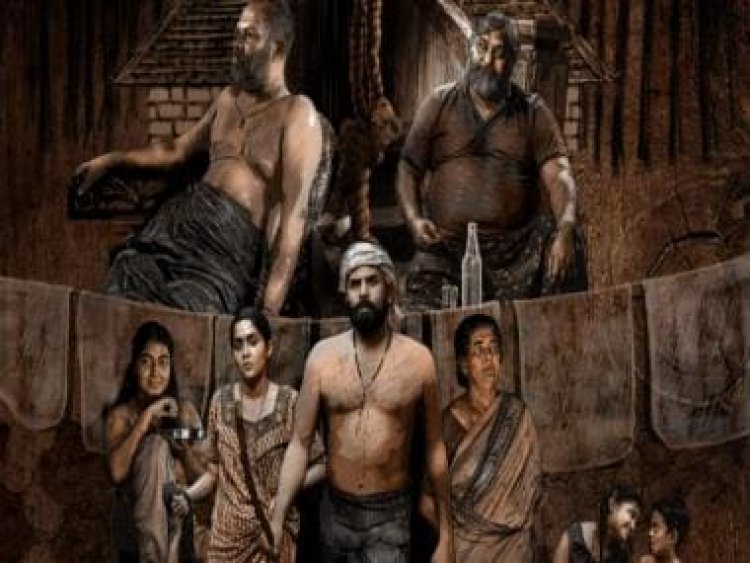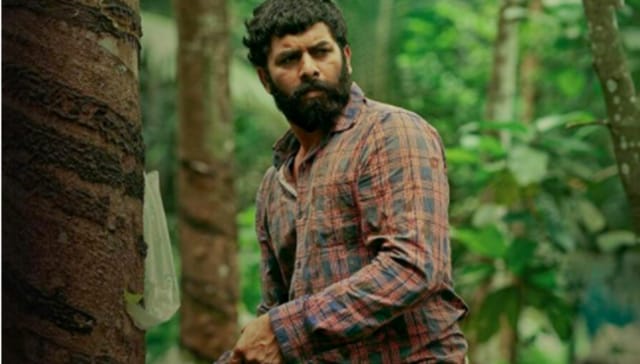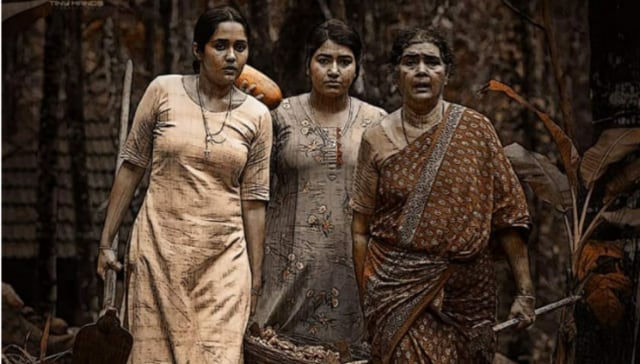Appan movie review: Unapologetic portrait of a family in the grip of a vile, debauched patriarch
Appan movie review: Unapologetic portrait of a family in the grip of a vile, debauched patriarch

Cast: Sunny Wayne, Ananya, Alencier Ley Lopez, Pauly Valsan, Grace Antony, Radhika Radhakrishnan, Vijilesh Karayad, Anil K. Sivaram, Geethi Sangeetha, Drupad Krishna
Director: Maju
Language: Malayalam
As the curtain rises on director Maju’s Appan (Father), a man is heard singing raucously and laughing loudly over the pin-drop silence in the rest of the house. It’s daybreak, and the only other people awake in that home are a woman and a man soundlessly getting ready for work.
That disruptive voice briefly brings to mind the bed-ridden grandfather in K.G. George’s Irakal (1985), lying ignored in a corner of his large home, his mind fogged up by age, ill-health and possibly by his irrelevance, shouting anxiously for attention. Only briefly. Itty (Alencier Ley Lopez) in Appan shouts too. But unlike the patriarch in Irakal, this old man hollers, and not out of desperation, but to swear at, taunt and shame his wife Kuttyamma (Pauly Valsan), son Njoonju (Sunny Wayne), daughter-in-law Rosy (Ananya), other relatives and even most visitors. He is paralysed below the waist but far from incapacitated or neglected.
Itty clutches his family in a vice-like grip, strategically combining emotional abuse with the threat of bequeathing his considerable properties to someone else.
In a society that finds ways to point fingers at women for the intimate-partner violence they face, it is common to ask: why didn’t she leave? Here in Appan, though Kuttyamma is blamed by at least one character for tolerating Itty, we also witness a gender role reversal and find the answer to a question no one asks: why doesn’t he leave?

As a child, Njoonju suffered the psychological trauma of growing up in a violent home. As an adult, he remains a target of his father’s foul tongue and the suspicions of others that he too might one day turn into an Itty. Why then does Njoonju not abandon Itty?
Appan is a film on the hold that abusers in a range of relationships – spousal, parental, even ‘romantic’ – have over their victims, and the power that patriarchy gives men not only over female relatives but also their male offspring.
Maju (who earlier directed French Viplavam) and R. Jayakumar have written a minimalist script, revealing details of only some of Itty’s wrongdoings and partial backgrounds of various characters in small increments right till the end. The single point made obvious from the start is that Itty is a horrible human being widely hated in the village and by his family.
The action never moves beyond the land around this home. It is a measure of the effectiveness of the writing, the gently haunting nature of Dawn Vincent’s music, and cinematographers’ Pappu and Vinod Illampally’s grasp on the material that, despite playing out in a limited space, Appan is engaging till the closing shot. There are places here and there when the film seems to stretch itself a bit, but the entry of a new character shakes up the mix each time.
Initially, Appan gives the impression that it will be a satire, as successive conversations revolve around everyone’s hope that Itty will die. The script is unable to sustain the tone of those early discussions though (the first of them feels particularly incongruous in retrospect), with the film getting progressively grim until it is clear that Appan is an unapologetic portrait of familial misery rivalled in Malayalam cinema in 2022 by the hero’s despair in Paka (River of Blood).
The primary characters and two others – the daughter Moly (Grace Antony) and the sex worker Sheela (Radhika Radhakrishnan) – are written with depth and detail, and beautifully acted. Of course there is irony in the casting of Alencier as one of the leads in a film about how tolerant a patriarchal society can be towards male obnoxiousness. MeToo now appears to be a distant speck in the film industry’s and public memory.

The main characters in Appan are not conventional despite the conservative setting, nor are they cinematic clichés. Indian society stereotypes mother-in-law/daughter-in-law relationships as inevitably adversarial, but here in Appan, as in 2021’s The Great Indian Kitchen, we are shown the potential for warmth between two such women, in Kuttyamma and Rosy’s love for each other. Kuttyamma lashes out at women with whom Itty had affairs, and in one instance, Njoonju questions her for misdirecting her fire, which he feels should be aimed at Itty alone, but here too, we see an alternative scenario emerging, as mutual suffering leads to empathy developing between women for whom it would be natural to be at loggerheads with each other.
The most uncommon of all the characters in Appan are Sheela and Njoonju. Both Radhika Radhakrishnan and Sunny Wayne are outstanding in their respective roles.
The parent-child bond is romanticised by Indian society and films, but Appan portrays a reality largely ignored by both: the reality of a bitter parent-child relationship and the pain of elder care when imposed on children by social conditioning and/or lack of choice even if a parent is a nasty piece of goods. Considering that mainstream Indian cinema continues to celebrate toxic masculinity and autocratic fatherhood, it takes courage to do what Maju does in this film: de-romanticise the appan of a family and call him out for the horror that he is.
(Minor spoilers in this paragraph) More than once, Njoonju is offered a chance to stand by as someone else finishes off Itty. The viewer can decide whether human instinct, a misplaced or confused sense of duty, his conscience or conditioning drives his response to that option. Njoonju is written with a profound understanding of the human psyche; I found myself unconvinced only by a scene in which Njoonju defends his father at great risk to his own life and another in the finale when he displays genuine tenderness towards Itty.
Sunny Wayne has been making some brave choices in the past couple of years, playing the conflicted husband of a woman who wants an abortion in Sara’s, a policeman who screws up in Kuttavum Shikshayum and now this. He delivers a career-defining performance as Njoonju, embracing his character’s suffocation in every line of his physique, in his wilting voice and drooping demeanour. With Sunny and the rest of the incredible cast on his team, Maju fearlessly paints a disturbing picture of manipulation by a vile, entitled, debauched patriarch and the wretchedness of those he controls.
Rating: 3 (out of 5 stars)
Appan is streaming on SonyLIV
Anna M.M. Vetticad is an award-winning journalist and author of The Adventures of an Intrepid Film Critic. She specialises in the intersection of cinema with feminist and other socio-political concerns. Twitter: @annavetticad, Instagram: @annammvetticad, Facebook: AnnaMMVetticadOfficial
Read all the Latest News, Trending News, Cricket News, Bollywood News, India News and Entertainment News here. Follow us on Facebook, Twitter and Instagram.
What's Your Reaction?


























































